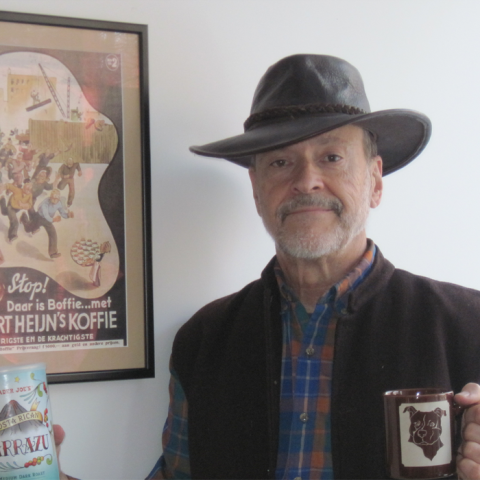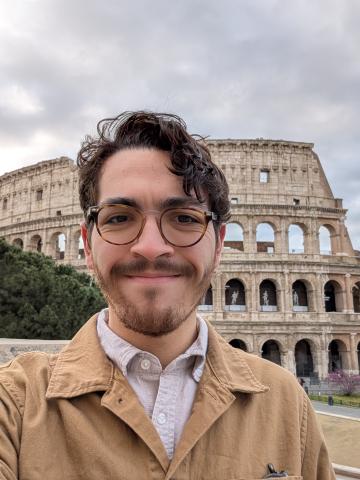- About
- People
- Graduate
- Undergraduate
-
Research
- Publications
- Geographic Area
- Time Period
-
Themes
- Cultural & Social History
- Digital Humanities
- Economic History & History of Capitalism
- Empires & Colonialism
- Environmental History
- Genocide & Mass Violence
- History of Slavery
- Intellectual History & History of Ideas
- Jewish History
- Labor History
- Legal History
- Material Culture
- Military & War History
- Political History
- Race & Ethnicity
- Religious History
- Science, Medicine, & Technology
- Spatial History, Frontiers, & Migration
- Transnational & Diplomatic History
- Women, Gender, & Sexuality
- Courses
Military & War History
Violent conflict, and the organization of society for such conflict, has always been a vital part of history, often a tragic part. The University of Virginia’s history faculty research and teach about the causes and character of warfare from ancient Greece and Rome, to medieval Europe, to the American Civil War, to the Cold War, to the twilight wars of today. Modern military history includes the study of why some of these pivotal events turned out the way they did, but it is about much more than campaigns and battles. It involves how warfare, or preparation for war, molds countries, societies, and cultural identity. It is about the experience of leaders, soldiers, and civilians and how these experiences are later remembered and understood (or not). Military and war history necessarily explore how societies develop new technologies or change their economies or refashion norms in gender and race relations, or reflect on laws and norms that respect the common humanity of war’s victims. In this last category in particular, there is often an overlap with the history of genocide. Especially in recent generations, military and war history also very much deal with the world of intelligence gathering and the way governments and peoples assess each other, sometimes in fear – hopefully in friendship.
Thomas Arnold Graduate StudentView ProfileRichard Barnett Associate Professor EmeritusView ProfileJ. Jacob Calhoun AlumniView ProfileCameron Colby Senior Instructor of American History at the United States Military AcademyView ProfileS. Max Edelson Professor; Co-Director, UVA Early American SeminarView ProfileMatthew Frakes View Profile Ethan Gonzales PhD Candidate (ABD)View ProfileCharles Heffernan-Brown Graduate StudentView ProfileWilliam Hitchcock James Madison Professor of History; Director, Governing America in a Global Era (GAGE)View ProfileIan Iverson View Profile Caroline Janney John L Nau, III, Professor in History of American Civil War; Director, John L. Nau III Center for Civil War HistoryView ProfilePaul Kershaw Associate ProfessorView ProfileAlice King View Profile J. E. Lendon William W. Corcoran Professor of HistoryView ProfileStefan Lund View Profile Andrew Preston W.L. Lyons Brown Jr. Jefferson Scholars Foundation Distinguished Professor of Diplomacy and StatecraftView ProfileKubra Sagir Graduate StudentView ProfileJennifer Sessions Associate Professor of History; Director of Undergraduate Programs in History; Affiliated Faculty, Department of FrenchView ProfileRyan Singsank Graduate StudentView ProfileKayla Snider Graduate StudentView ProfileZejun Wang Graduate StudentView ProfileEmma Williams View Profile Justin Winokur Graduate StudentView ProfileEmily Woolner Graduate StudentView ProfilePhilip Zelikow White Burkett Miller Professor, EmeritusView Profile























